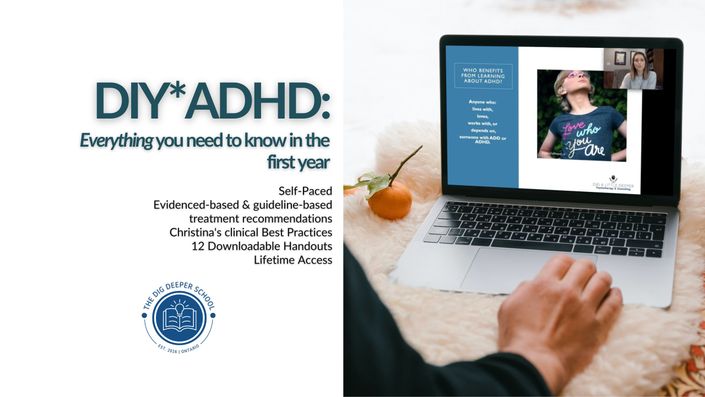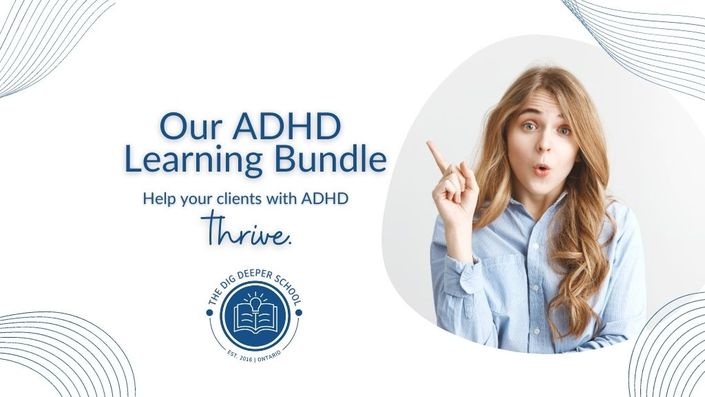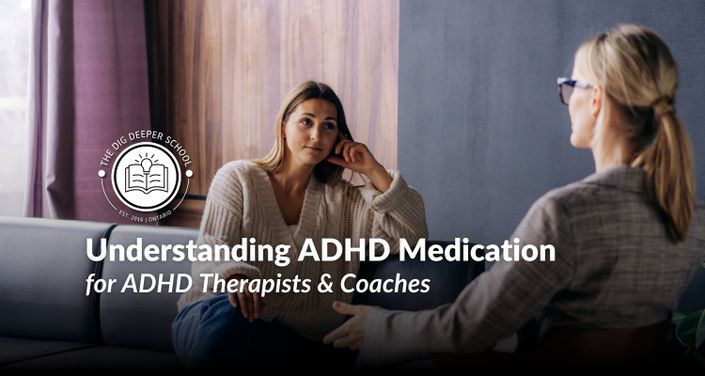
DIY*ADHD: Couples is your introduction to ADHD-Adapted
Relational Therapy (AaRT) for Couple Therapists.
AaRT (formally called AECT), developed by Couple Therapists John Foulkes RP and Christina Crowe RP, helps couple therapists learn how to identify ADHD, understand its impact in couples therapy in particular, and confidently integrate ADHD-adapted treatment into their chosen couples’ therapy modality.

ADHD can be difficult to identify in the session room due to its heterogeneity.
There is a lot of information (and misinformation!) to sift through, and it can be difficult to know where to turn for credible information. It's also challenging to find therapeutic experts with significant clinical experience.
Couple therapists can feel uncertainty about why therapy wasn't helpful for a couple - was it the modality? the couple? the therapist? the setting?
They might experience a loss of confidence, and ultimately pull away from helping myriad couples or families that need them.
Why ADHD Matters
ADHD is missed in couple's therapy largely because it is still significantly under-recognized, under-diagnosed, and under-treated amoung adults globally.
- The heritability of ADHD, combined with the under-diagnosed and under-treated context, means people with ADHD have also been found to be more vulnerable to developmental or childhood and attachment trauma.
- Adults with ADHD report less stability in their love relationships, feel less able to provide emotional support to their loved ones, experienced more sexual dysfunction, and have higher divorce rates.
- Unmanaged ADHD is a risk factor for dating violence, family violence, infidelity, high conflict divorce, and adults with ADHD report lower marital satisfaction than their non-ADHD peers.
A couple with undiagnosed (or diagnosed, but unmanaged) ADHD within the dynamic, has this as a major feature that sets them apart: The reason these couples cannot be treated the same as 'neurotypical' couples is the behaviour of the undiagnosed partner(s) is being largely driven by invisible and involuntary brain function, rather than by choice or trauma.
Hear from Christina and John
A great example of why layering an ADHD lens makes all the difference.
This course allows you to:
- Identify the involuntary brain-driven behaviours commonly challenging the couples therapeutic process,
- How to integrate relational neurobiology into your chosen couples therapy modality through AECT Model of Practice: ADHD Experiential Couples Therapy.
- How to coordinate care with other practitioners confidently and
- How to provide hope for the future, anchored in science and healthy attachment.

The Benefits
- Neurodivergent-affirming and LGBTQ+-affirming,
- Downloadable Intake and Case Note templates,
- A Course Workbook, handouts and a resource list for further study,
- Eligibility for 5 OAMHP CEC’s hours, toward required continuing education requirements,
- Lifetime access,
-
Counts toward the upcoming DALD Canadian ADHD Certified Practitioner designation.
Couples’ therapists will come away with a renewed confidence in identifying a truly solvable problem that is a significant unmet need within the couple and family therapy demographics.
Participants will also be able to articulate a vision of hope for couples and families, based on current science and what we know is possible.

The Curriculum
5 CEC's
Participation in this workshop allows OAMHP members to apply for 5 Continuing Education Credit hours, towards their required continuing education requirements.
OAMHP’s review of the general content of this workshop recognizes the learning objectives meet and support the criteria (1) for best known practice in continuing education and (2) for educational requirements for mental health professionals.






